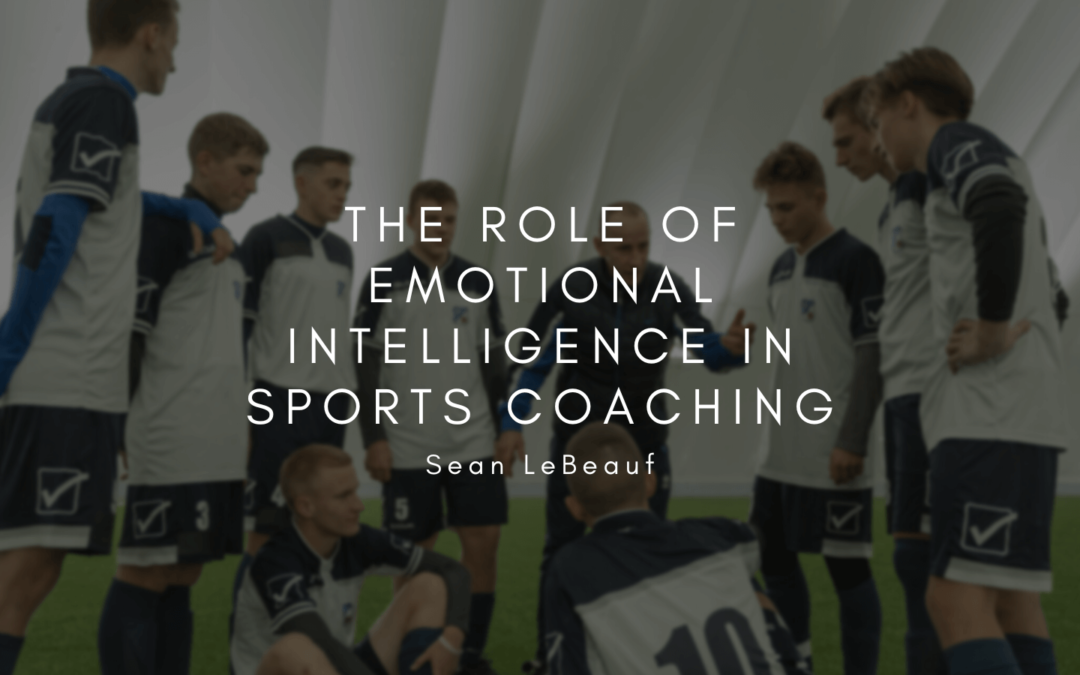In addition to being able to teach sports skills, coaching also involves developing solid relationships with individuals and groups. This is done through the use of emotional intelligence (EI). In sports psychology, this type of expertise can be used to build strong relationships with players and coaches. Substantial evidence supports the use of emotional intelligence in sports performance. In this article, I will talk about the various aspects of this type of expertise and how it can be used to improve the skills of coaches.
Emotional Intelligence Improves Self-Awareness
One of the first components a coach needs to develop to be emotionally intelligent is self-awareness. This is a type of expertise that allows them to understand their own emotions and moods. One of the most effective ways to improve self-awareness is by keeping a daily journal that can be used to track all of your thoughts and feelings during practice and games. After every practice or game, take a few minutes to write down the situations that have caused you to feel frustrated, debilitated, or disgusted. You can also create a personalized profile of your own emotions by taking a few minutes to reflect on the various situations that have caused you to feel frustrated or disgusted. This will help you manage your emotions better.
Emotional Intelligence Improves Emotional Perception
Being able to talk about your own feelings is also a valuable part of being a successful coach. A clear understanding of other people’s feelings can help a coach make an unbiased assessment of their abilities. Highly self-aware individuals can admit their own mistakes confidently and are not afraid to share their shortcomings.
Emotional Intelligence Increases Self-Regulation
Another step a coach needs to develop to become effective is learning how to manage their emotions. This discipline involves learning how to control or redirect their moods and impulses. Strong self-regulation skills can help a coach build a positive environment and lead to a more ethical and honest work environment.
List the scenarios that can cause you to fly off the handle as a coach. Write down the negative thoughts you would typically respond to in each scenario. For instance, the coach might feel frustrated or disgusted if an athlete is late to practice. After you have written down the negative thoughts, try to replace them with positive solutions and ideas. Instead of accusing the athlete of being irresponsible, they might try to find a way to help the player get on track and avoid being late in the future.
Emotional Intelligence Can Increase Motivation
A highly motivated coach can overcome any obstacle that comes his way. They will not give up on their goals and will continue to work hard to improve the performance of their players. Coaches must also maintain their motivation and motivate their performers to get the best possible results. Emotionally intelligent coaches are often better at being motivated by small successes, rather than needing to win games to stay invested.
Emotional Intelligence Increases Empathy
Developing practical interpersonal skills is another critical skill. One of the most critical factors a coach needs to grow to become an effective coach is empathy. This is a skill that goes beyond concern to share the feelings of others. Empathizing with others can help build strong relationships with players and improve their performance.
One of the most effective ways to improve the relationship between the coach and their players is to schedule one-on-one meetings. During this time, the coach can listen to the players and gather information about their concerns. Then, use the collected data to improve the team environment. Being able to relate to the feelings of your players can help motivate them and improve their performance. By showing them that their feelings matter, they will want to give their best.
Although having the necessary technical and strategic knowledge is a prerequisite for becoming a successful coach, studies have shown that other factors such as self-regulation, empathy, and social skill are also crucial to becoming an effective coach. These skills can help create a conducive environment for the players’ enjoyment.


